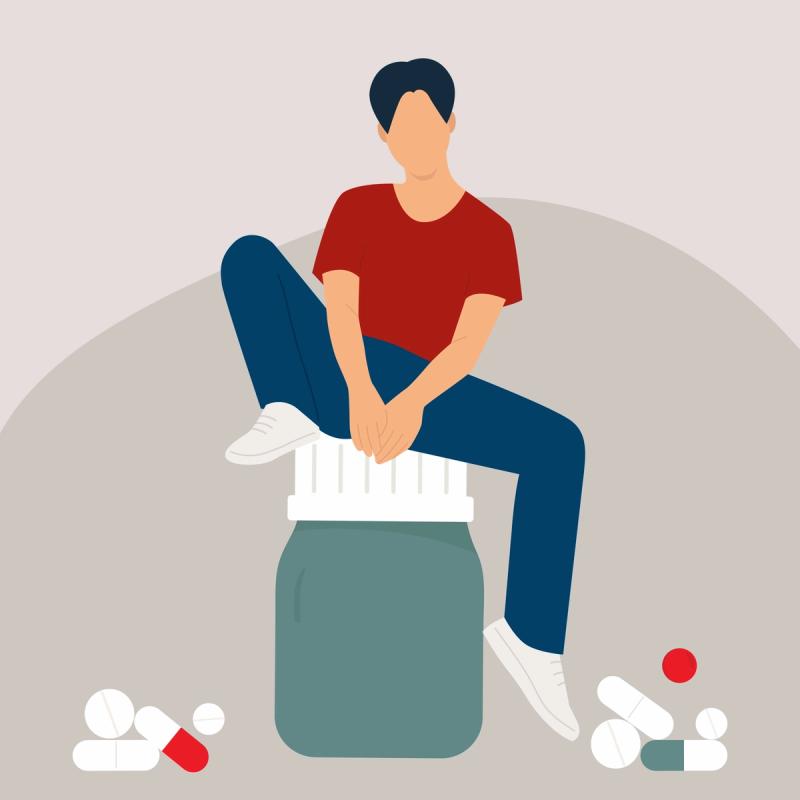Xanax and other benzodiazepines have proven effective in the acute treatment of anxiety symptoms, the use of these physically addictive medications comes with a severe risk of dependence and complications.
There are a wide variety of nonaddictive anxiety medications that have proven effective at treating anxiety disorders, often just as effective as Xanax, with less risk of dependence.
If you are considering Xanax, looking to switch from Xanax, or are just curious about medication anxiety treatment, this comparison will help you understand your options.
Key Takeaways
Xanax® (alprazolam) is a fast-acting benzodiazepine used for short-term relief of anxiety, but it carries a risk of dependence and is not intended for long-term use.
Nonaddictive prescription alternatives include SSRIs, SNRIs and buspirone. These are commonly used for long-term anxiety management.
Alternatives differ in how quickly they take effect. While benzodiazepines work in minutes, most long-term treatments take a few weeks to show full benefits.
What is Xanax (alprazolam)?
Xanax (alprazolam) belongs to a class of medications called benzodiazepines and works by decreasing abnormal excitement in the brain. It is prescribed to treat anxiety and panic disorders.
Alprazolam is available as a tablet, an extended-release tablet, a quick-dissolving tablet and a concentrated liquid. The extended-release tablet is generally taken once per day, while all other formulas can be taken up to three times per day or as needed.1
The effects of alprazolam are usually noticeable within an hour after ingestion and last between eight and 12 hours. The drug can stay in the system anywhere from 31 hours to nearly six days.2
Side Effects
If taken as directed, alprazolam has mild to moderate side effects, including:3
Drowsiness.
Light-headedness or dizziness.
Headache.
Irritability.
Talkativeness.
Difficulty concentrating.
Dry mouth.
Increased salivation.
Changes in sex drive or ability.
Nausea.
Constipation.
Changes in appetite or weight changes.
Difficulty urinating.
Joint pain.
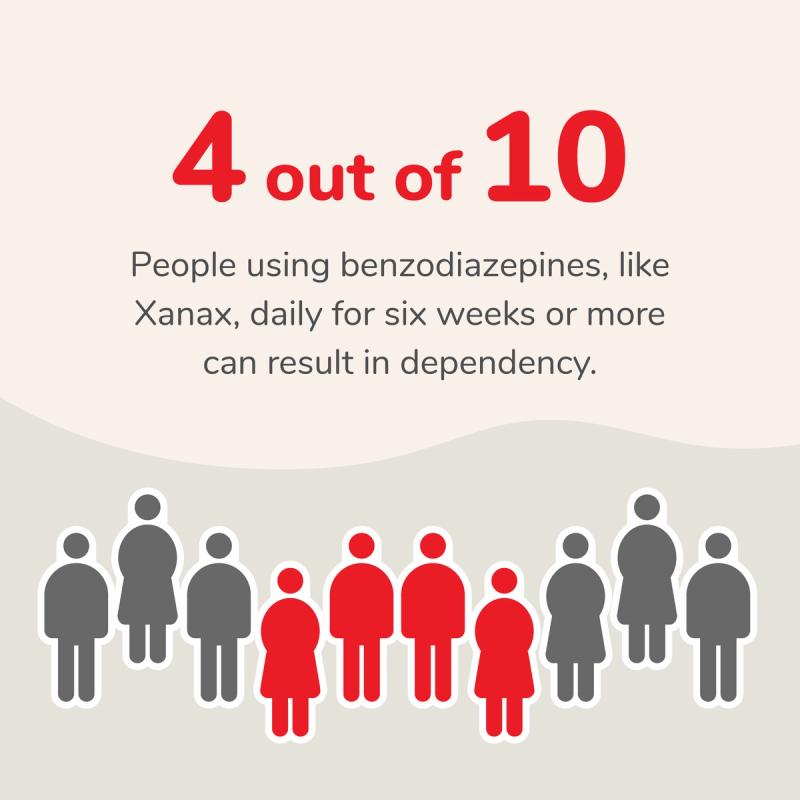
Risks of benzodiazepines
There is a high risk of misuse or dependence with alprazolam. The more often or longer an individual uses alprazolam, the higher the risk of both physical and psychological dependence. Daily use of benzodiazepines, like alprazolam, for six weeks or more results in dependency in four out of 10 users.4
Benzodiazepine use also carries a risk of memory loss. While on benzodiazepines, short-term memories can be blocked from turning into long-term memories, which means users may not remember events that happened while taking benzodiazepines.5
Taking alprazolam with other medications or alcohol increases the risk of serious and life-threatening conditions.6
What are other benzodiazepines?
Other benzodiazepines include clonazepam (Klonopin®), diazepam (Valium®), lorazepam (Ativan®), bromazepam, oxazepam (Serax®) and clorazepate (Tranxene®). In treating panic disorders, alprazolam showed similar clinical results to other benzodiazepines.7 The differences between alprazolam and other benzodiazepines are more often in the side effects, speed, and duration of results. All benzodiazepines carry a strong risk of abuse and dependence.8
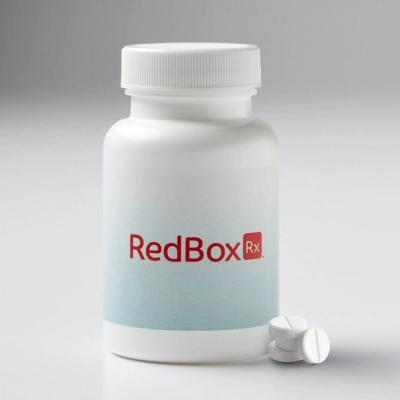
Convenient, affordable anxiety treatment online.
Your mental health is important. Start your secure, private online doctor consultation and get treatment for $25/month.
Get StartedWhat are safer, alternative anti-anxiety medications to Xanax?
All benzodiazepines carry a risk of abuse or dependence. Luckily, there are alternative anti-anxiety medications with less risk and less severe side effects and withdrawal symptoms.
Selective Serotonin Reuptake Inhibitors (SSRIs)
Initially developed for depression, selective serotonin reuptake inhibitors have proven successful in treating anxiety disorders. SSRIs can help replace benzodiazepines9 and have fewer side effects, risk of abuse and withdrawal symptoms.10 Common SSRIs prescribed for anxiety include:11
SSRIs work by blocking reuptake and increasing brain levels of the neurotransmitter serotonin. Serotonin is believed to positively impact mood, emotion and sleep. The full effects of SSRIs can take two to four weeks to be felt.12
Most SSRIs are out of your system within one week of stopping. Some, like fluoxetine (Prozac®), can stay in your system for close to a month.13
In a meta-analysis of drug treatments for anxiety, benzodiazepines were more effective than SSRIs. However, both drug classifications were significantly more effective than placebo.14
Side effects of SSRIs and benzodiazepines have some similarities but occur differently. SSRIs can cause side effects in the first few weeks, usually diminishing with time. Common side effects of SSRIs include:15
Nausea.
Diarrhea.
Insomnia.
Drowsiness.
Headache.
Dry mouth.
Dizziness.
Restlessness.
Problems with sexual arousal.
Serotonin-Norepinephrine Reuptake Inhibitors (SNRIs)
Serotonin-Norepinephrine Reuptake Inhibitors (SNRIs) are a class of medications used to treat depression, anxiety and some kinds of chronic pain, including nerve pain. SNRIs block the reabsorption of the neurotransmitters serotonin and norepinephrine in the brain to help regulate mood.16
Common SNRIs for anxiety include:17
It can take six to eight weeks to feel the full effects of SNRIs. However, SNRIs can provide long-term anxiety symptom relief.18 Most SNRIs stay in your system for one to three days.19
In clinical studies, both benzodiazepines and SNRIs were effective at treating anxiety disorder compared to placebo. However, benzodiazepines were found to be more effective than SNRIs overall.20
Common side effects of SNRIs include:21
Nausea.
Dry mouth.
Dizziness.
Headache.
Excessive sweating.
Tiredness.
Constipation.
Insomnia.
Changes in sexual function.
Loss of appetite.
Buspirone (Anxiolytics)
Buspirone belongs to a class of medications called anxiolytics and is prescribed for anxiety disorders. It works by increasing neurotransmitters serotonin and dopamine in the brain for mood regulation. The mechanism of action for buspirone is different from SSRIs or SNRIs and can be effective as an alternative or as a supplement to other anxiety medications.22
It can take three to four weeks to feel the full effects of buspirone.23 It has a half-life of two to three hours and will eliminate from the system within 24 hours.24
Clinical studies show that buspirone is as effective as benzodiazepine at treating anxiety disorders in the long term. However, buspirone is not as effective at treating acute panic attacks.25
Common side effects of buspirone include:26
Dizziness or lightheadedness.
Nausea.
Diarrhea.
Headache.
Excitement.
Confusion.
Fatigue.
Nervousness.
Sleep problems.
Feelings of anger or hostility.
Weakness.
Numbness.
Increased sweating.
Hydroxyzine (Antihistamine)
Hydroxyzine belongs to a class of medications called antihistamines. It is prescribed to treat anxiety and relieve tension.27 It works by blocking the effects of histamine produced by the body to decrease activity in the brain. Antihistamines can be used as a sedative for sleep as well.28
Hydroxyzine can be used for acute anxiety treatment as needed or daily as a long-term treatment.29 Hydroxyzine starts working within 15 to 30 minutes.30 The drug can stay in your system for up to four days, but the effects will wear off much quicker.31
In a comparison study, hydroxyzine was shown to be as effective as benzodiazepines for treating anxiety.32
Common side effects for hydroxyzine include:33
Dry mouth.
Constipation.
Confusion.
Dizziness.
Headache.
Propranolol (Beta Blocker)
Propranolol belongs to a class of medications called beta blockers. It works by relaxing blood vessels and slowing heart rate, which can help relieve physical symptoms of anxiety.34 Propranolol has been shown to be particularly effective against performance or situational anxiety.35
Propranolol can begin to relieve anxiety symptoms as soon as one hour.36 Therapeutic effects can last three to six hours.37
In clinical studies, propranolol was determined to be as effective as benzodiazepines in treating anxiety disorders.38
Common side effects of propranolol include:39
Dizziness or lightheadedness.
Tiredness.
Diarrhea.
Constipation.
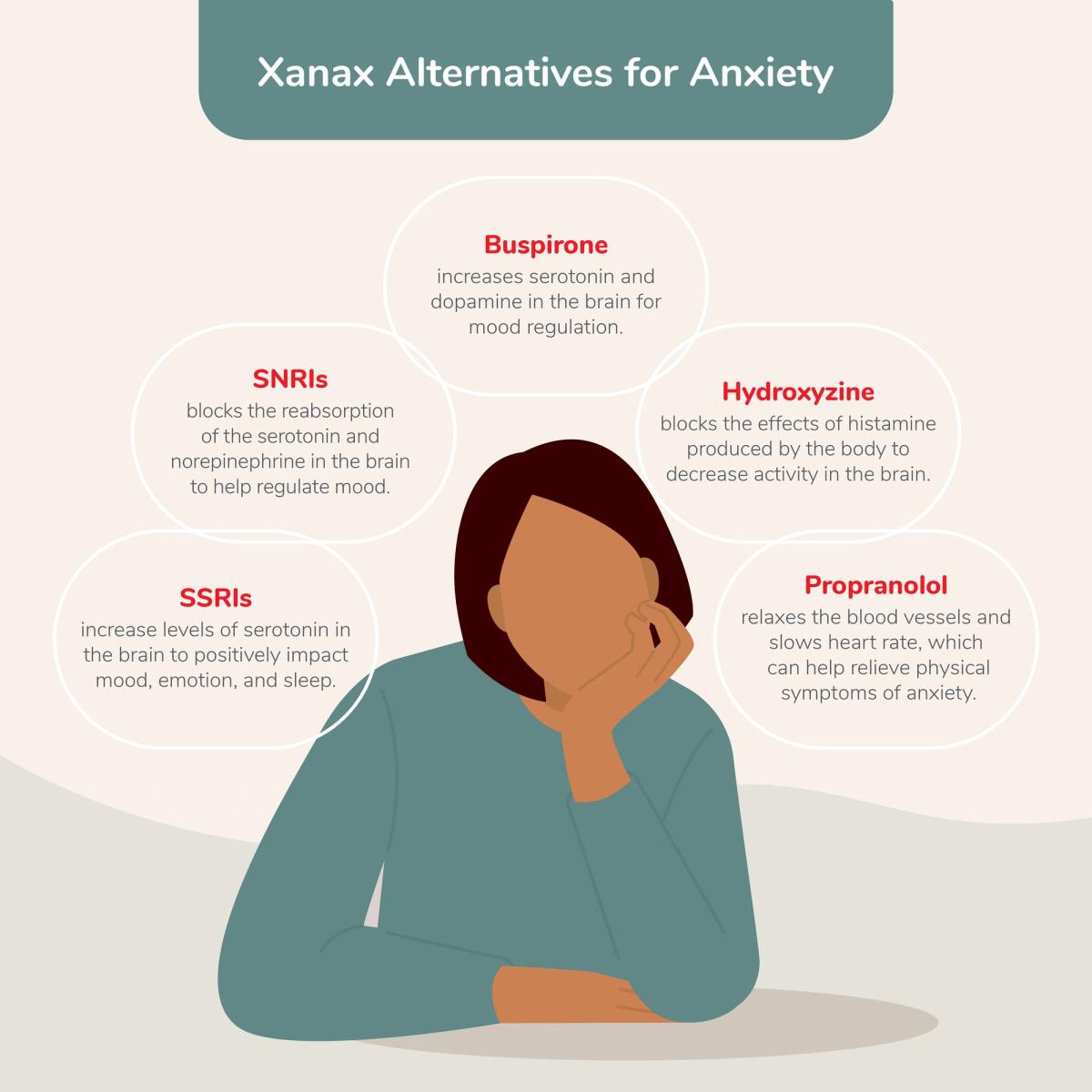
How to help if you suspect addiction or misuse of Xanax
If you or someone you know is struggling with misuse of Xanax, please reach out for help immediately. Try to approach someone struggling with compassion and understanding. You can find treatment providers and additional resources on addiction from Substance Abuse and Mental Health Services Administration (SAHMS).
If you are in crisis or suspect an overdose, please call 911 or go to the closest emergency room.
How to safely switch from Xanax to an alternative medication
Stopping Xanax use can cause uncomfortable and sometimes dangerous withdrawal symptoms. It is recommended to work with your provider to determine a plan to transition safely from Xanax to an alternative medication.
The plan from your health care provider could include slowly tapering off Xanax, switching to a longer-acting equivalent or using adjunctive medications to help minimize negative withdrawal symptoms.40
Xanax (Alprazolam) vs. Nonaddictive Anxiety Meds Comparison Chart
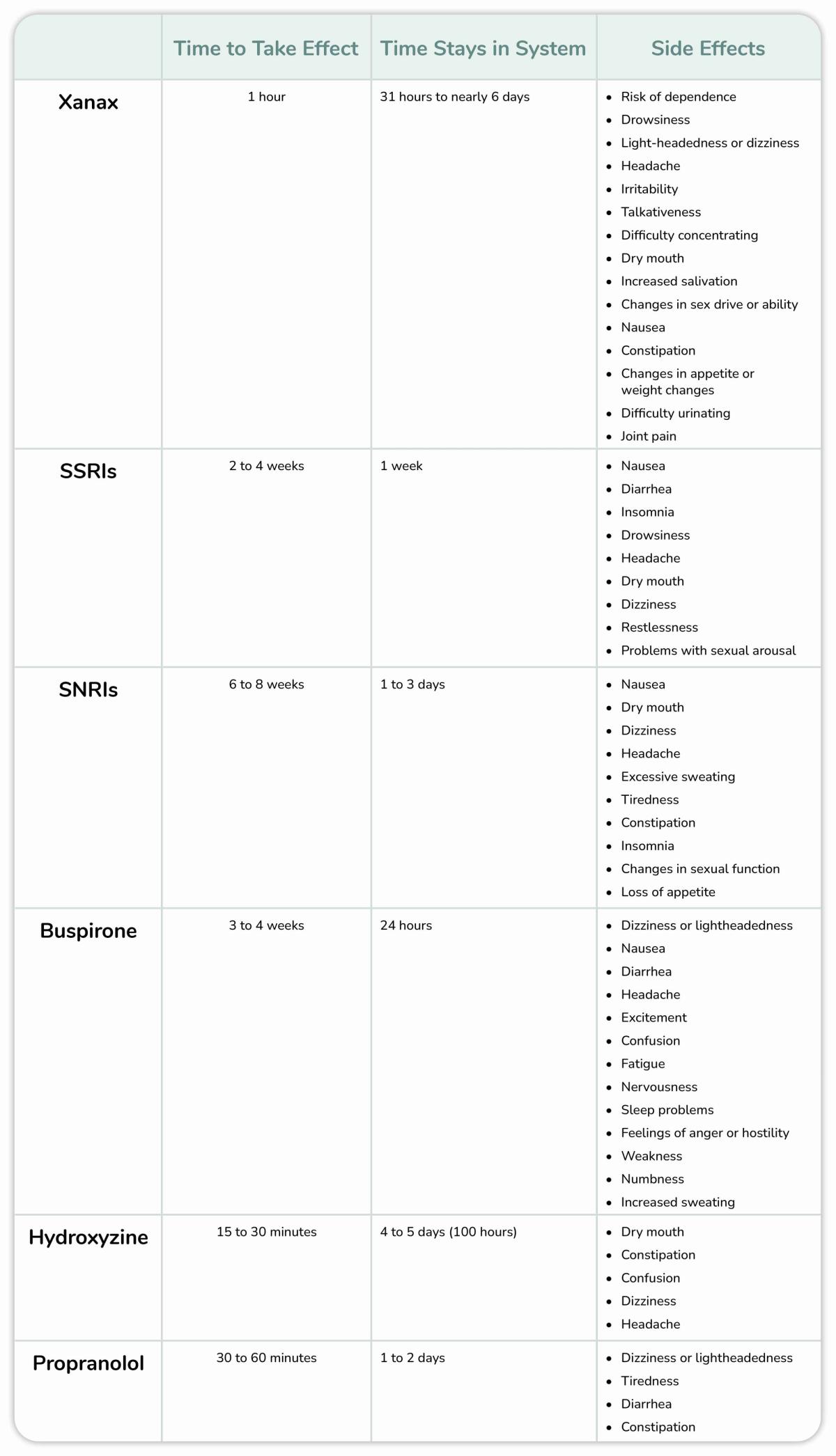
How RedBox Rx can help
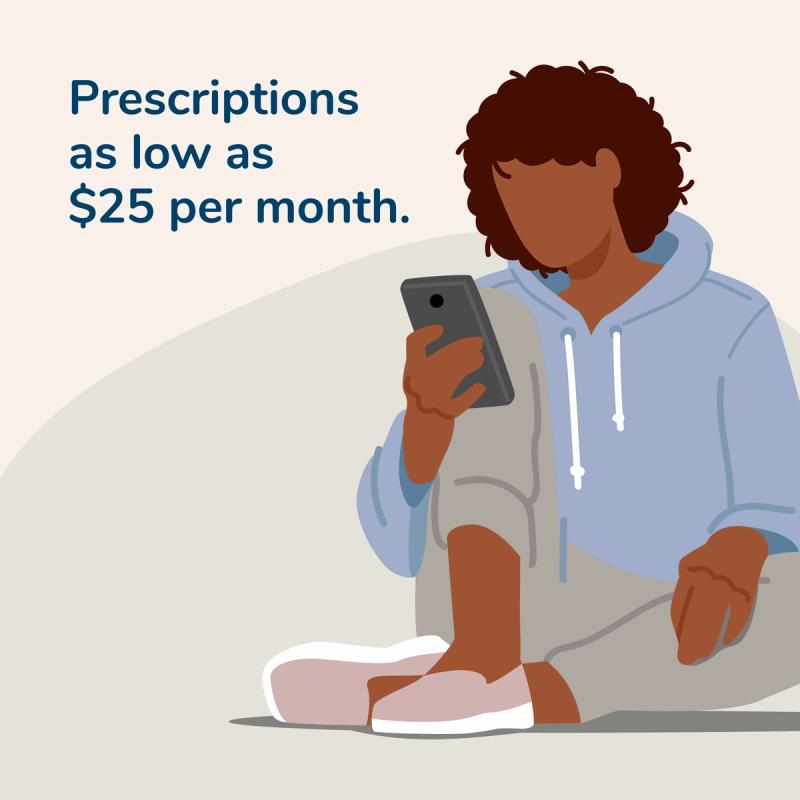
RedBox Rx makes receiving medication treatment for anxiety easy and affordable.
Benefits of RedBox Rx include:
Transparent, affordable, flat rates for medications starting at $25/month.
$35 consultation with a U.S. licensed medical professional.
No insurance required. FSA and HSA eligible.
No office wait times or scheduling issues typical with physical medical practices.
FREE shipping directly to you. Monthly and quarterly subscriptions available.
Get started on your anxiety treatment journey with our online assessment.

